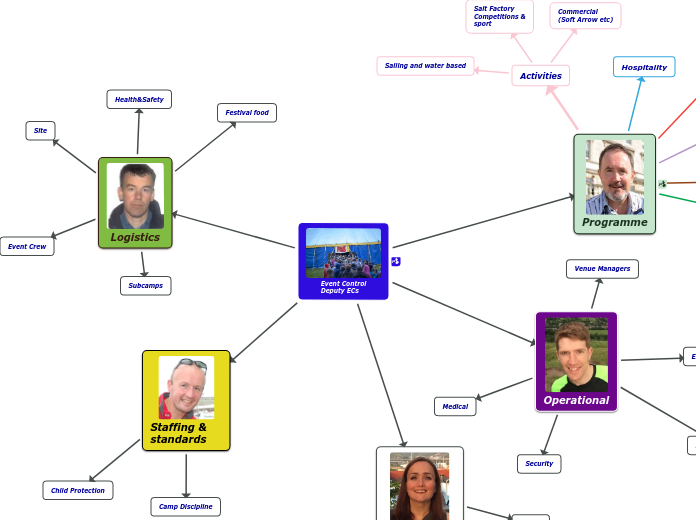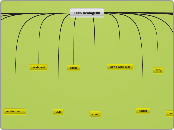WebEngineering WS 08/09
Part 6 - Developement
Preserving State
Jackie fragt
Request/Response
hint nur bei XForms
HTML Forms
ENCTYPE
XSL-Transformations
XHTML
DTD
&
Conflicts Resolving
Cascading the style sheets
Positioning
Inheritance
Applying Styles
Other Media Types
Media Type Image I
Poster
Bewerbung Karibik
SVG
Differences?
Advantages?
PNG
JPEG
GIF
Domain Specific standards
Standard XML Schemas
There is no "the standard"
Data Technologies
Testing & Evolution in Context
test & coding
Part 5 - Planning
Federation Technologies
Security Concerns
Cookie
HTTP
CGI
SSI
Webserver
AJAX
Combine different technologies for creating web pages that“behave” like desktop applications
XSS
Cross Site Scripting
DHTML
Dhtml just for laught's
Client-Side Code
XForms
HTML-Forms
XSL
Learing XSLT
CSS
Why you should use CSS
XPath
Zur Extraktion beliebiger Teile eines wohl-geformten XML-Dokuments verabschiedete das W3C 1999 die Sprache XPath.
XLink
Das zugrundeliegende Problem, nämlich der Wunsch durch einen Link mehrere Ressourcen gebündelt referenzieren zu können, tritt in praktischen Anwendungen häufig auf. Beispielsweise beim Verweis auf mehrere Versionen eines Dokuments, alternativen Downloadservern oder Bildern verschiedener Auflösung.
Zu Realisierung erlaubt XLink die Bündelung von verschiedenen Verweisen zu einem einzigen erweiterten XLink. Nachfolgend ein Codeausschnitt, der dies für die Projektverwaltung zeigt.
http://www.jeckle.de/vorlesung/xml/script.html#XLink
some other formats
image/jpg
image/gif
Media Type Image 1
Standard XML-Schemas
Just Enough XML to Survive
Testing and Evolution in Context
Building releases
Tech-Map
Navigation
Presentation
Dialogue
DSA
Process
Data
Part 4 - Pre-Planning
Part 3 - Aspects of the lifecycle
Part 2 - Technology: Basic & Principles
XML
XML Language Family
HTML
Markup
MIME
Content-Type
URN vs. URL
URL
Example: http-URL
URN
Reserved characters
URI
Adressing ressources
retrieving information
process/render data of resource
handle response
server side
send resource
process
handle request
request resource
prepare request
Unter-Topic
adress?
find resolver
adress resource
round robin
Multi-homed hosts
DNS host name resolution
Protocol Layers Overview
OSI
Open Systems Interconnection Reference Model
TCP/IP
Standards and Organisations
SOA
Service Oriented Architecture
SOAP
Simple Object Access Protocol
Standards
How
w3c - iterative establishing process
workshops
Why
reusability
interoperability
understand requirements
understand processes
Part 1 - Introduction and Overview
The Need for Process
webengineering
Web Engineering – is the application of systematic, disciplined,and quantifiable approaches to the design, production,deployment, operation, maintenance and evolution of Webbasedsoftware products. [Gaedke, 2000]
Engineering is about the systematic application of scientific knowledgein creating and building cost-effective solutions to practical problems
different definitions
history
4 disciplines
Network Engineering
Information systems
storage devices
Hypermedia
Softwareengineering
aesthetic and cognitive aspects
quality requirements
reliable
low cost
high qualitiy
Different requirements views
Web Application Production
influence factors
the change of technology
A look at resources
World Wide Web and the early beginning
W3C
6 Document types
World Wide Web
Consequences
Concept
WWW is...
Uniform Access
Uniform Adressing
Idea
Tim Berners-Lee at CERN
History
Hypertext History
Atkinson
Nelson
Englebart
Bush
Hypermedia?
Hypertext-Documents
Anchor
Link
Node
What is Hypertext
Non-linear nodes of information
Navigate through Information Space
How to Feed your Head
Ted Nelson
"hyptertext = non-sequential writing"
Memex
Vannevar Bush









